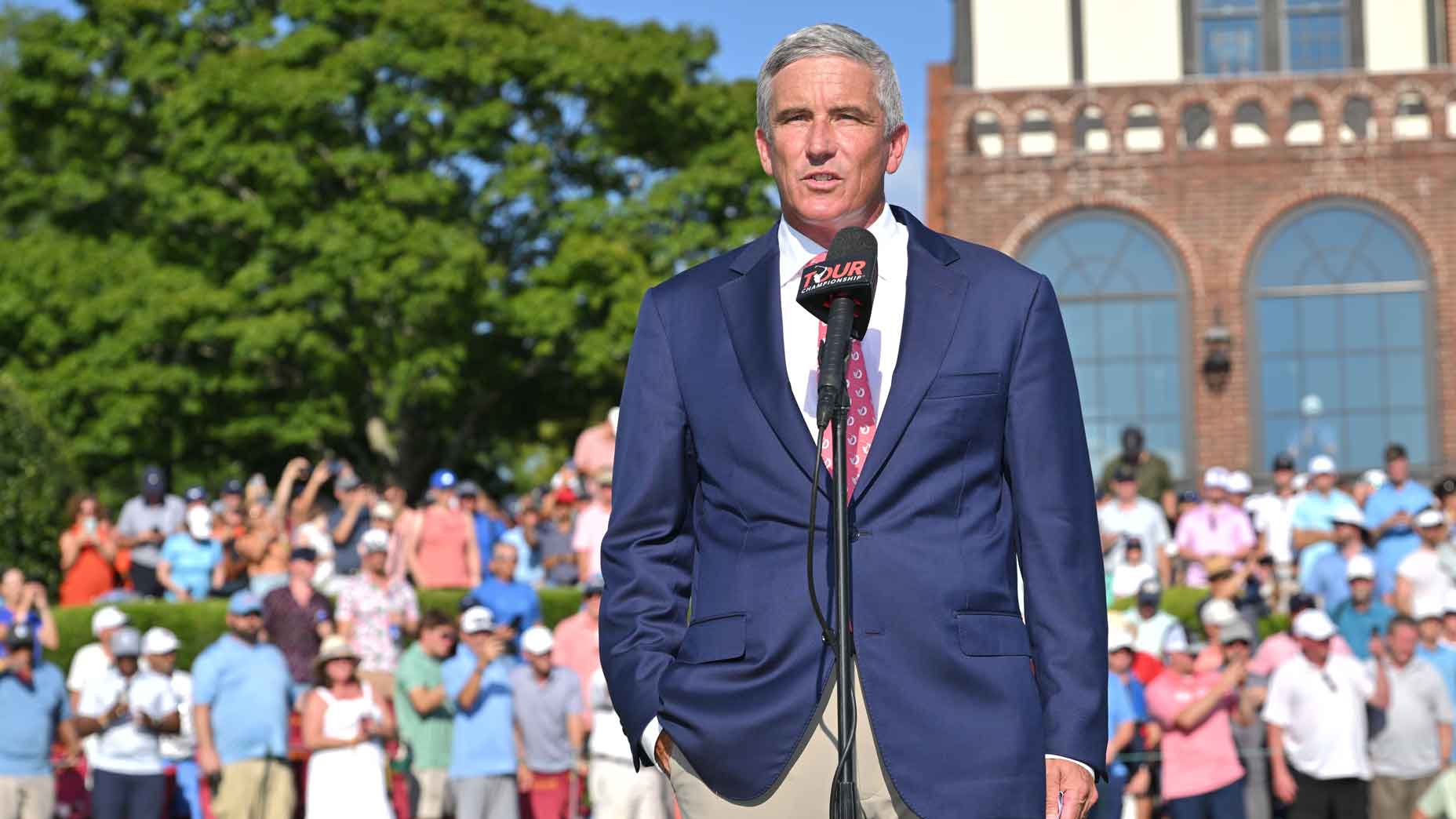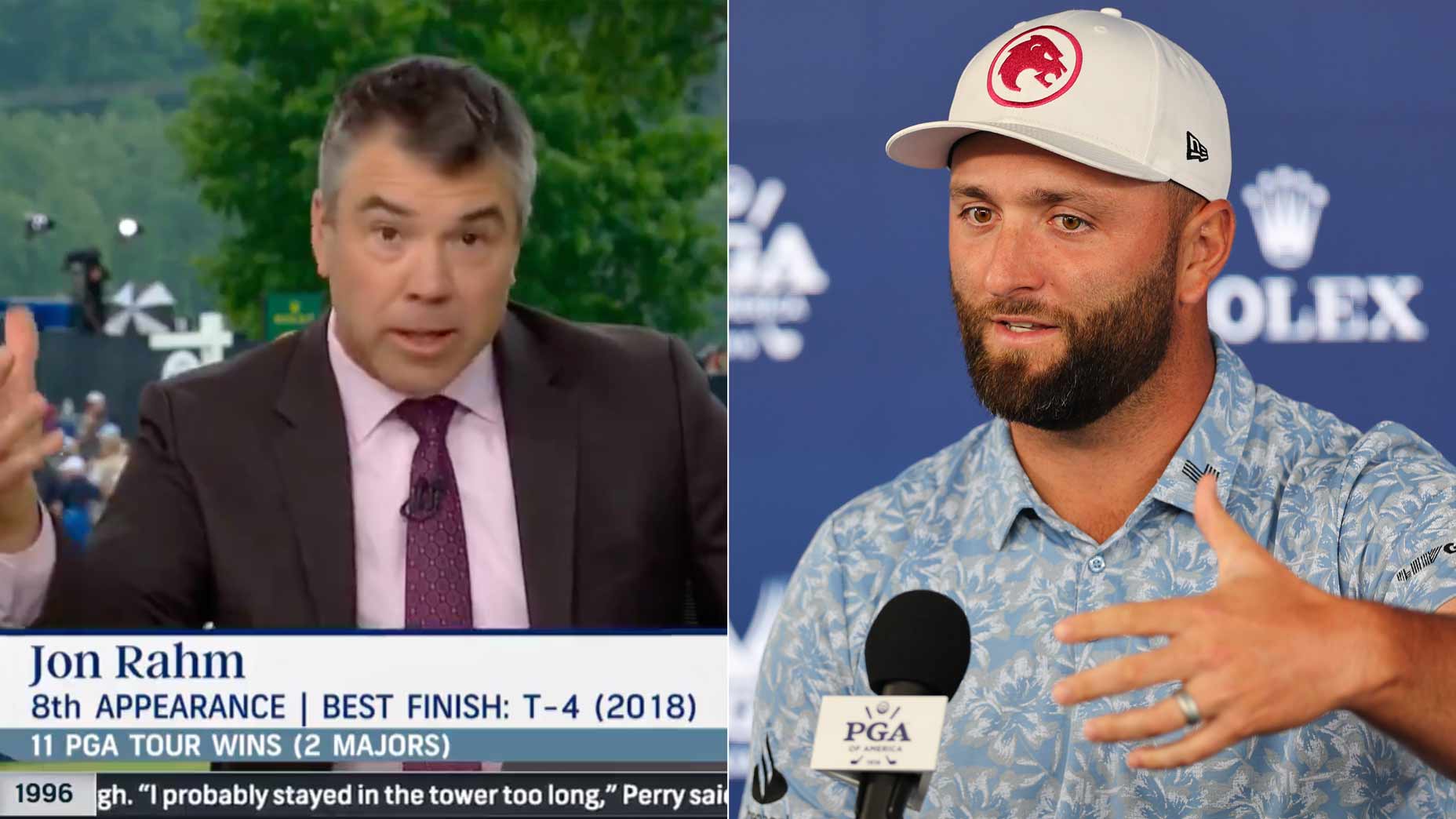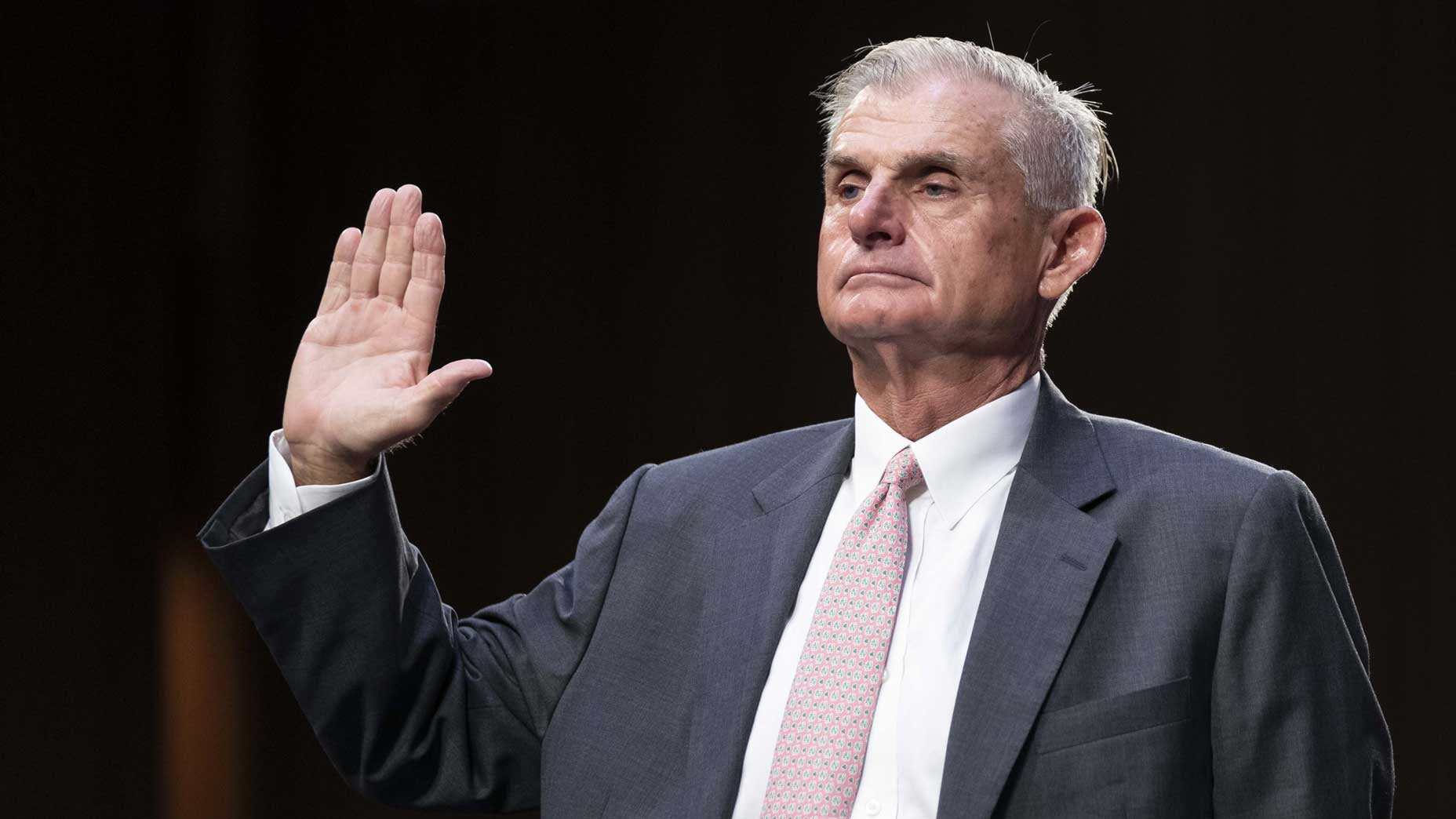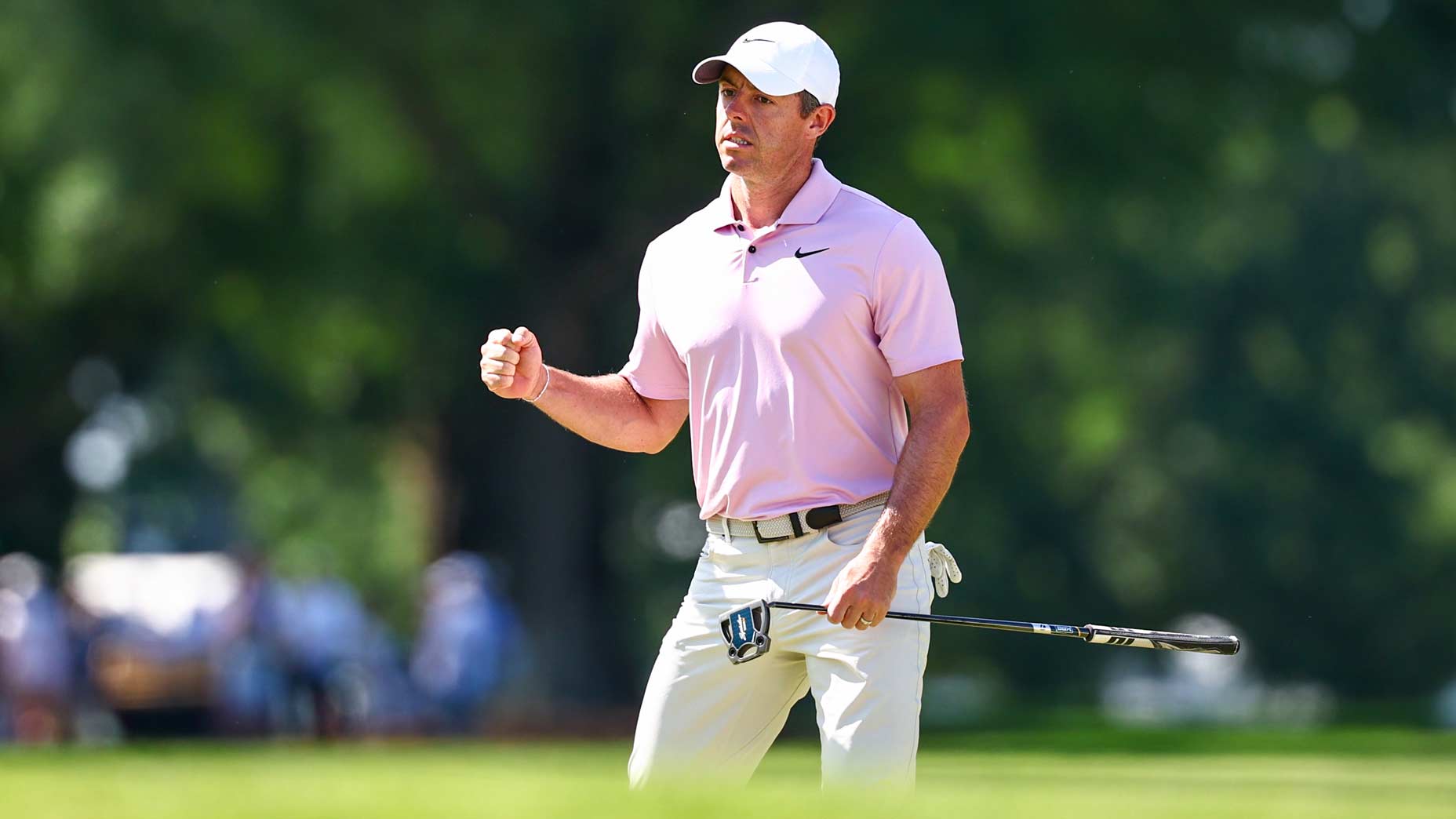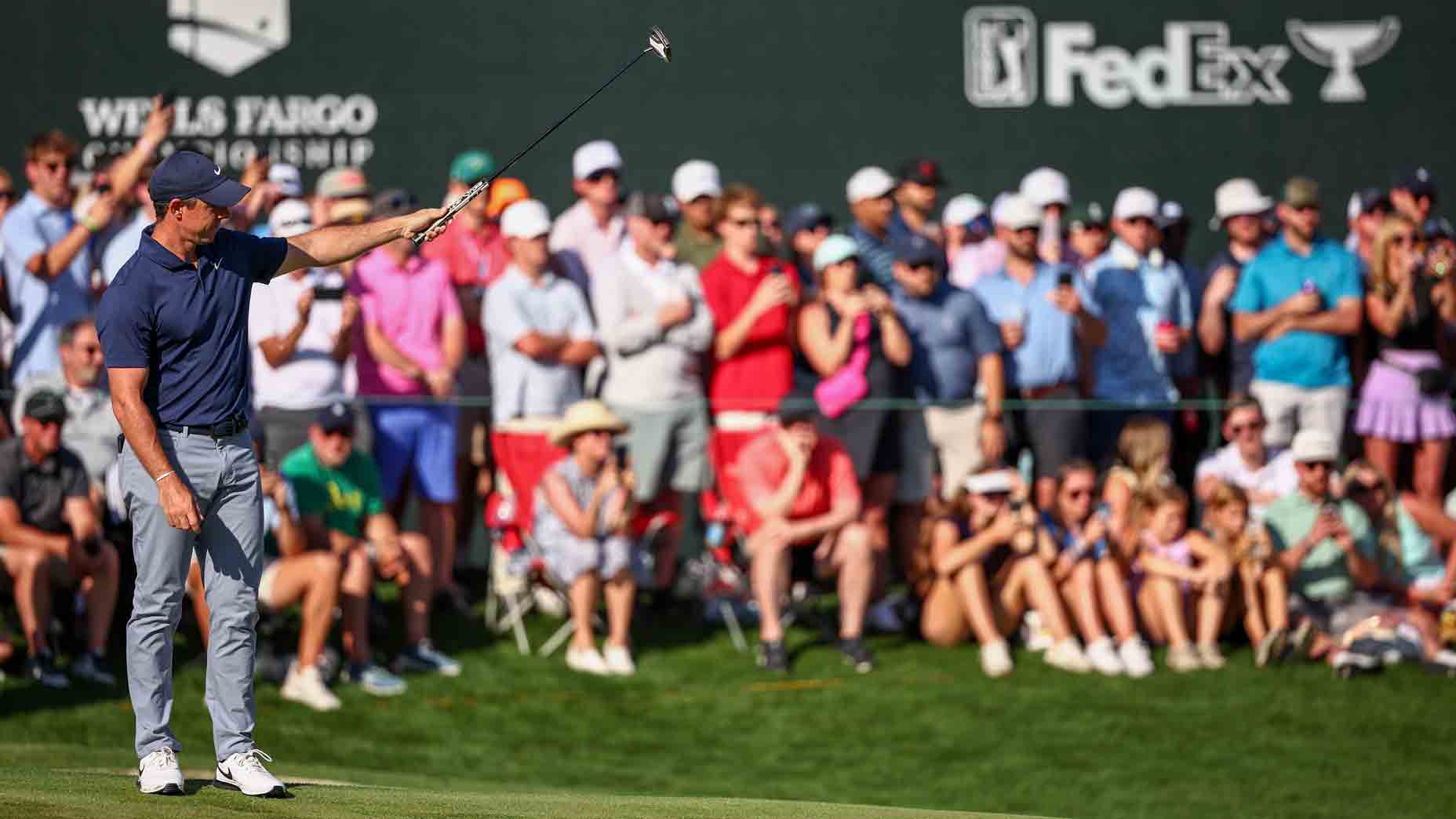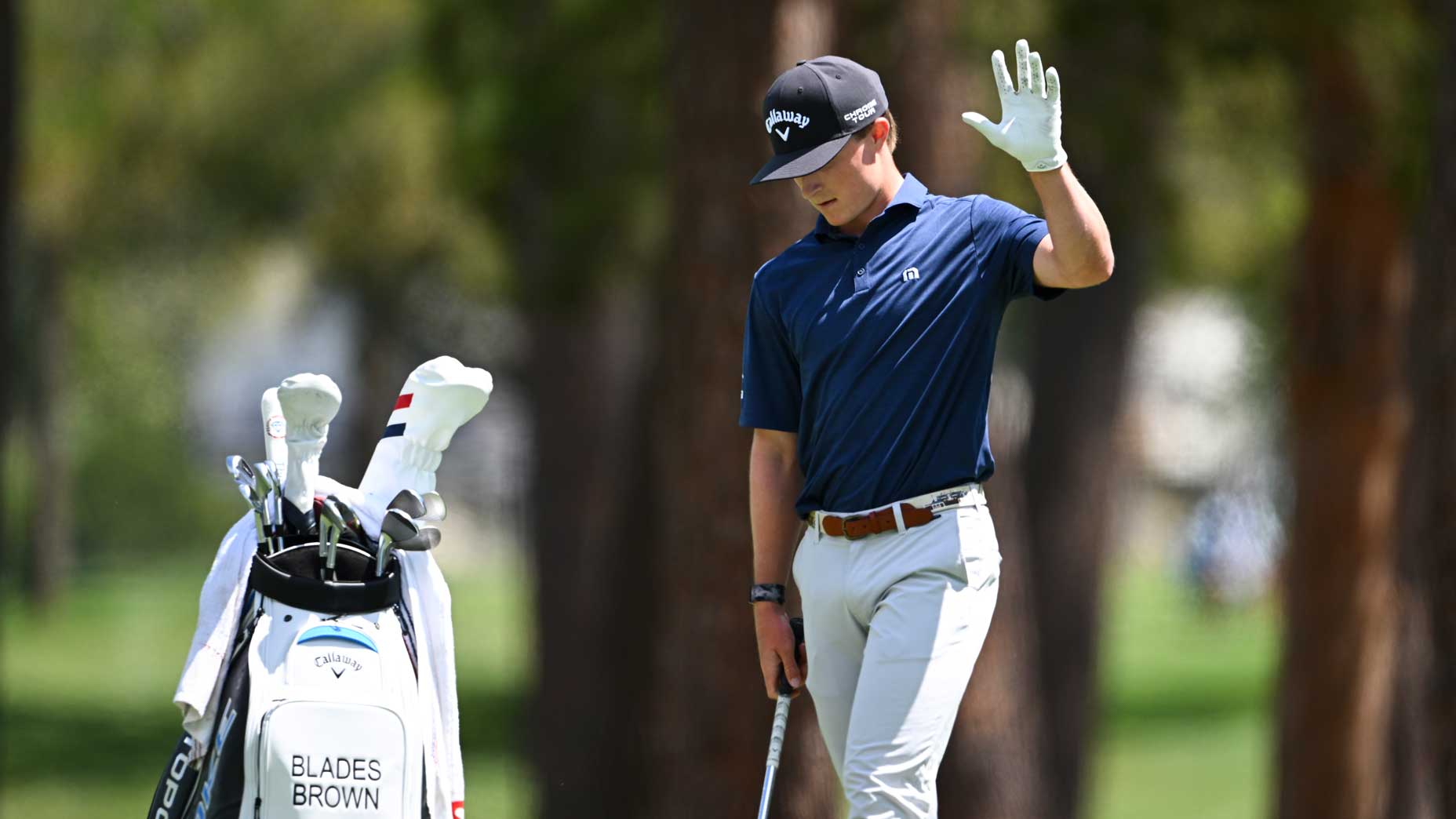Here’s what PGA Tour/PIF merger success looks like, according to Jay Monahan
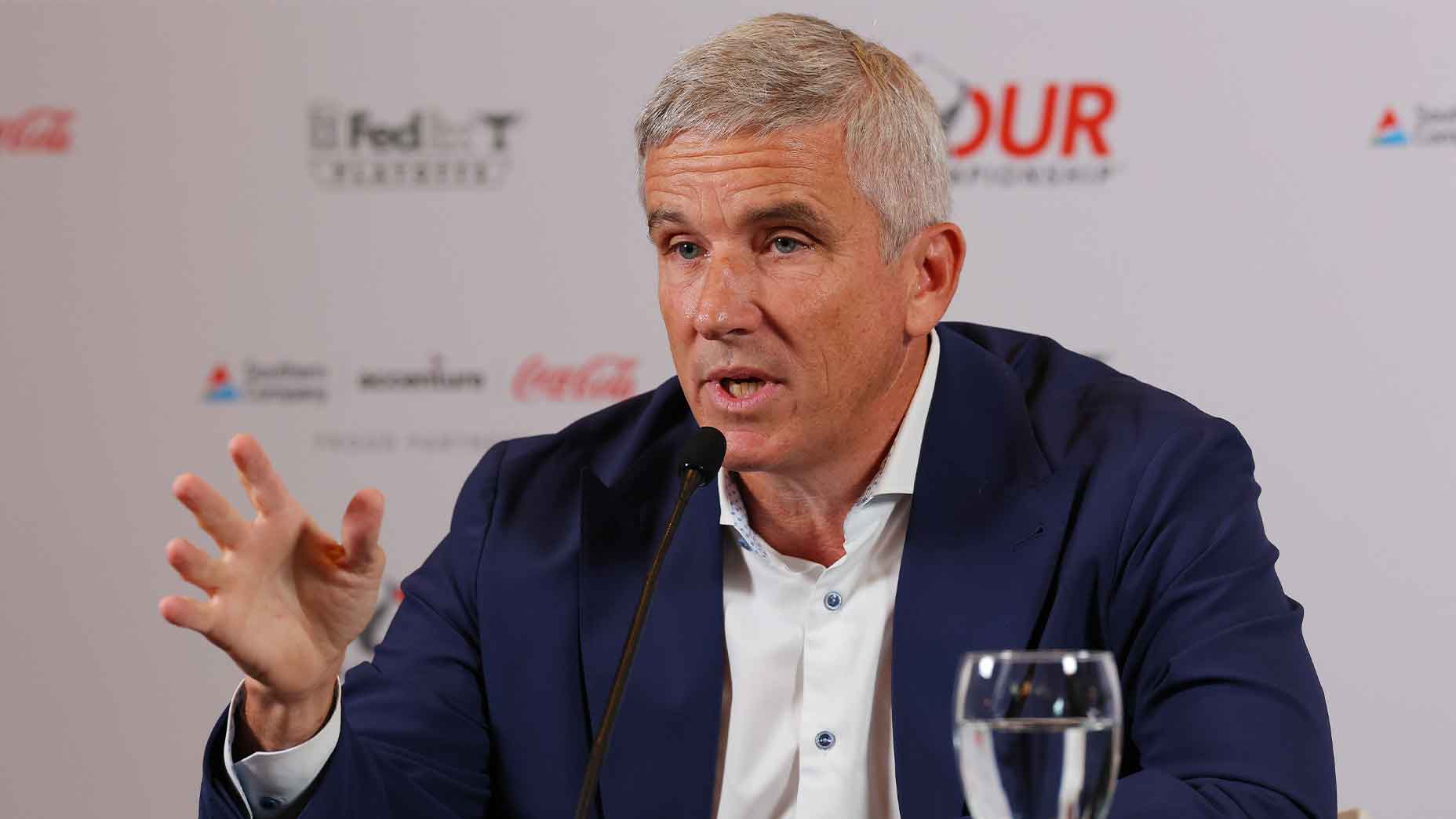
Jay Monahan spoke at a press conference on Tuesday at the Tour Championship.
Getty Images
PGA Tour commissioner Jay Monahan stepped to the podium on Tuesday morning at the Tour Championship and delivered the answer everybody already knew.
“We remain confident that we will reach a positive outcome for the PGA Tour,” he said of the framework agreement with the Saudi PIF — a shapeshifting piece of legalese that now dominates most of his waking hours as Tour chief.
The problem was that he’d deftly avoided the answer everybody wanted to know: what does a “positive outcome” even look like?
“What is a positive outcome? It’s what I said earlier,” Monahan said, sidestepping the direct question in a manner so impressive it ought to have brought a tear to the eye of the PR flaks in attendance.
And what, exactly, had Monahan said about 10 questions earlier about a “positive outcome” for the PGA Tour? Well, almost nothing.
“Our commitment [is] to moving from the divisive nature of the relationship we had to a productive one, for us to be able to make a fundamental transition to our business with the formation of NewCo, to have an investable entity for PIF to believe able to invest in that previously didn’t exist, for the PGA Tour to be in control of the future of men’s professional golf and for us to be partners.”
This, it seemed, was as close as the world would get to gleaning specifics from the PGA Tour on the state of the framework agreement with the PIF — a non-answer referencing a previous non-answer. Never mind that the agreement promises to dramatically change the state of the Tour and the landscape of professional golf. Never mind that Monahan is one of a small handful of people with the requisite knowledge to share such information publicly. It wasn’t happening.
But then, as if propelled by some divine force, Monahan continued his answer — revealing for the first time a series of small but highly notable details about the shape of the agreement with the PIF.
“For fans, [a positive outcome is] for us to be able to use the capital to be able to invest back in our product,” Monahan said. “You know, to do things like further reduce commercial inventory in our broadcast, to further invest in our data businesses, to further invest in our media business, to potentially invest in entities and companies that we think are going to help us grow and diversify our fan base and the game.”
Whoa — now that counts as notable. Commercials during golf broadcasts are one of the biggest gripes shared by golf fans. An agreement allowing the Tour the cash to show fewer of them during the average tournament broadcast would be a massive improvement to the viewing experience. Other potential “media partner” improvements — like every shot live, the wholesale expansion of ShotLink or the expansion of the Tour’s weekly broadcast production budget — would only serve to compound those positive changes felt by fans.
These changes aren’t advanced today for a myriad of reasons, but the most prominent of them is money. In short, the Tour is overleveraged, operating on a delicate balance of appeasing both sponsors and players, both of which are essential pieces of its overall financial puzzle. In order to keep purses rising (and TV contracts increasing), the Tour has been forced to squeeze every penny from its rights agreements and tournament sponsors, which has meant adjusting the telecast’s commercial model to sell more advertising and, by extension, generate more revenue. The margins are still comfortable for the Tour, yes, but the Tour has deemed the margins are not comfortable enough to forfeit money in order to invest in the Tour product or the sport more broadly.
But if another entity were to provide the Tour with a massive cash infusion — say, $3 billion from a foreign sovereign wealth fund — to use as it sees fit, those margins would begin to shift. There would be less pressure on the Tour to maintain its current financial model so stringently, and more freedom to make improvements.
“We’re not an organization that has the capital to invest, so to be able to be in that position and do that productively and constructively for the Tour and our players, but also for the game,” Monahan said. “I think the thing that I’m thinking about is you get the question about 2025, but it’s also, you know, where are you going to be in 10 or 15 years?”
This, for the first time, reveals some of the true motivation behind the Tour’s abrupt decision to partner with the Saudis. Yes, those other pesky issues (litigation, friendship, control) were key in pushing a deal closer to the finish line, but it was these upsides (and, one presumes, many more that are still being negotiated) that made the agreement worth the significant downside.
Of course, there’s a cogent argument to be made that fewer commercials, glitzier broadcasts and bigger paydays don’t necessarily equate to the value lost by cozying up to a country with an abhorrent record of human rights violations and violent treatment toward marginalized groups. And, there’s another cogent argument to be made that in 10 or 15 years, the broader, more diverse audience turned away from the game by these decisions might prove unreachable even with all the money in the world.
But it is at least beneficial to hear Monahan explain the benefits of the new agreement in terms more specific than platitudes. And it is helpful for him to outline some of the vision for the pot of gold promised to professional golf on the other side of this deeply divisive rainbow.
“We have a responsibility to [grow the sport] in addition to making this the strongest Tour it can possibly be,” he said. “I think it allows us to do both. So that to me is a successful outcome.”
As he finished that thought on Tuesday morning, Monahan paused once more, and silence fell over the press room at the Tour Championship for a beat.
For just a moment, the PGA Tour had provided more answers than questions.

